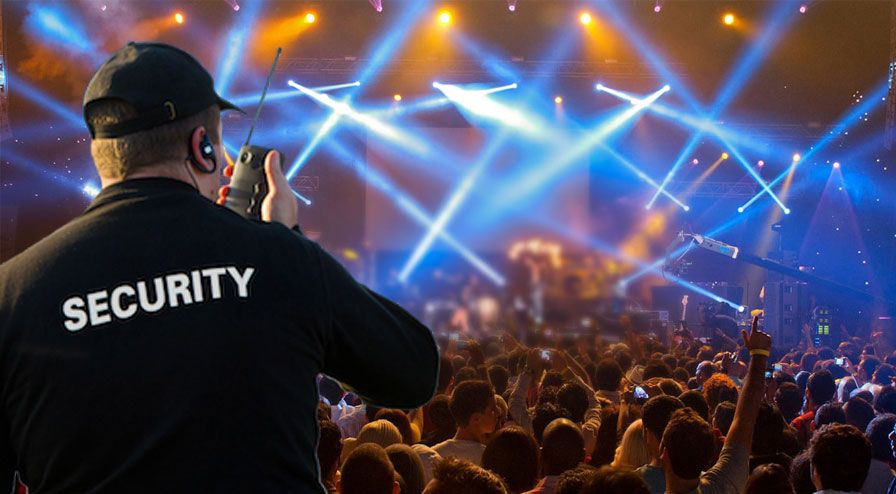Organizing an event, whether it’s a small gathering or a large-scale public affair, requires thorough preparation. One of the most critical aspects of event planning is ensuring the safety and security of everyone involved. It is the process of anticipating, planning for, and mitigating potential risks to protect attendees, staff, and property during an event. Failing to prioritize security can result in accidents, chaos, and legal complications, which can tarnish the event’s success. In this blog, we’ll explore the key considerations for security planning and why it’s essential to take an inclusive approach to safeguarding your event. By focusing on proper planning and preparation, you can create a secure environment that allows your guests to enjoy the event without worry.
Alpine Protection Services
Alpine Protection Services is dedicated to providing top-notch security services tailored to meet the unique needs of clients in Edmonton and beyond. Specializing in a range of services including residential, commercial, and event security, Alpine Protection Services prioritizes safety and professionalism. With a team of highly trained security personnel, the company offers customized strategies designed to protect properties, people, and assets. Whether it’s managing access control, patrolling construction sites, or securing large-scale events, Alpine Protection Services delivers reliable and inclusive security services, ensuring peace of mind for all clients.
Hiring Professional Security Services
One of the most effective ways to ensure the safety of your event is by hiring professional security services. Professional security personnel are trained to handle a wide range of situations, from crowd control to emergency response. They are experienced in managing potential risks and can help mitigate problems before they escalate. When hiring security services, look for companies that specialize in security and have a proven track record of success. It’s important to work with a reputable security provider that understands the unique challenges of securing events. In addition, ensure that the security personnel are licensed, well-trained, and equipped with the necessary tools to handle any potential issues.
Crowd Management and Control
Crowd management is a critical component of security. Without proper crowd control measures, large gatherings can quickly become chaotic and even dangerous. To prevent overcrowding and maintain order, you need to plan for how guests will enter, move around, and exit the event space. Next, plan for smooth entry and exit points. Assign security personnel to monitor these areas and control the flow of guests. Using barriers or stanchions can help guide attendees and prevent bottlenecks. For large-scale events, consider using ticket scanning or wristbands to verify that only authorized individuals are entering the event.
Access Control and Screening Procedures
Another important element of event security is controlling who enters the event. Implementing strict access control measures helps prevent unauthorized individuals from entering the venue and ensures that only guests with valid tickets or credentials are allowed in. Depending on the nature of your event, you may want to set up screening procedures at the entrance. This could include checking identification, scanning tickets, or searching bags for prohibited items such as weapons or alcohol. While these procedures may take extra time, they are essential for ensuring the safety of everyone inside the venue. If your event includes VIPs or high-profile individuals, you may need to implement additional layers of security, such as separate entrances, private lounges, or close protection officers (bodyguards). Protecting high-profile attendees requires heightened vigilance, as they may be at greater risk of security threats.
Managing Alcohol and Substance Use
Many events, such as concerts, festivals, and weddings, involve the consumption of alcohol. While alcohol can add to the enjoyment of the event, it also presents unique security challenges. Intoxicated individuals may become unruly, cause disturbances, or pose a danger to themselves and others. As part of your security plan, it’s important to establish clear guidelines for alcohol consumption and manage it responsibly. Start by limiting the amount of alcohol attendees can purchase or consume. Having trained bartenders and alcohol servers who can recognize the signs of intoxication and refuse service when necessary is essential. You may also want to set up designated alcohol consumption areas to prevent people from wandering the event with drinks.
Inclusive Risk Assessment
A thorough risk assessment is the cornerstone of any successful event security plan. This process involves identifying potential threats and vulnerabilities specific to your event, such as overcrowding, unruly guests, or emergency situations. By understanding these risks, you can implement proactive measures to mitigate them, ensuring the safety of attendees, staff, and property. Risk assessments also help tailor security strategies to the size, location, and nature of the event, allowing for a more focused and effective approach to security.
Collaborating with Local Authorities and Emergency Services
For larger events, it’s important to collaborate with local authorities such as law enforcement, fire departments, and medical services. Establishing relationships with these organizations before the event can ensure a coordinated response in the event of an emergency. Reach out to local law enforcement to discuss your security plan and provide them with details about the event, including the expected number of attendees, the location, and any potential risks. In some cases, you may need to hire off-duty police officers or request additional law enforcement support for crowd control and traffic management.
Conclusion
Effective event security is essential for creating a safe and enjoyable experience for all attendees. By conducting a thorough risk assessment, hiring professional security services, managing crowds, controlling access, preparing for emergencies, and collaborating with local authorities, you can ensure that your event runs smoothly and securely. Whether you’re planning a small gathering or a large public event, prioritizing security will help protect your guests, staff, and property, ultimately contributing to the event’s success.



